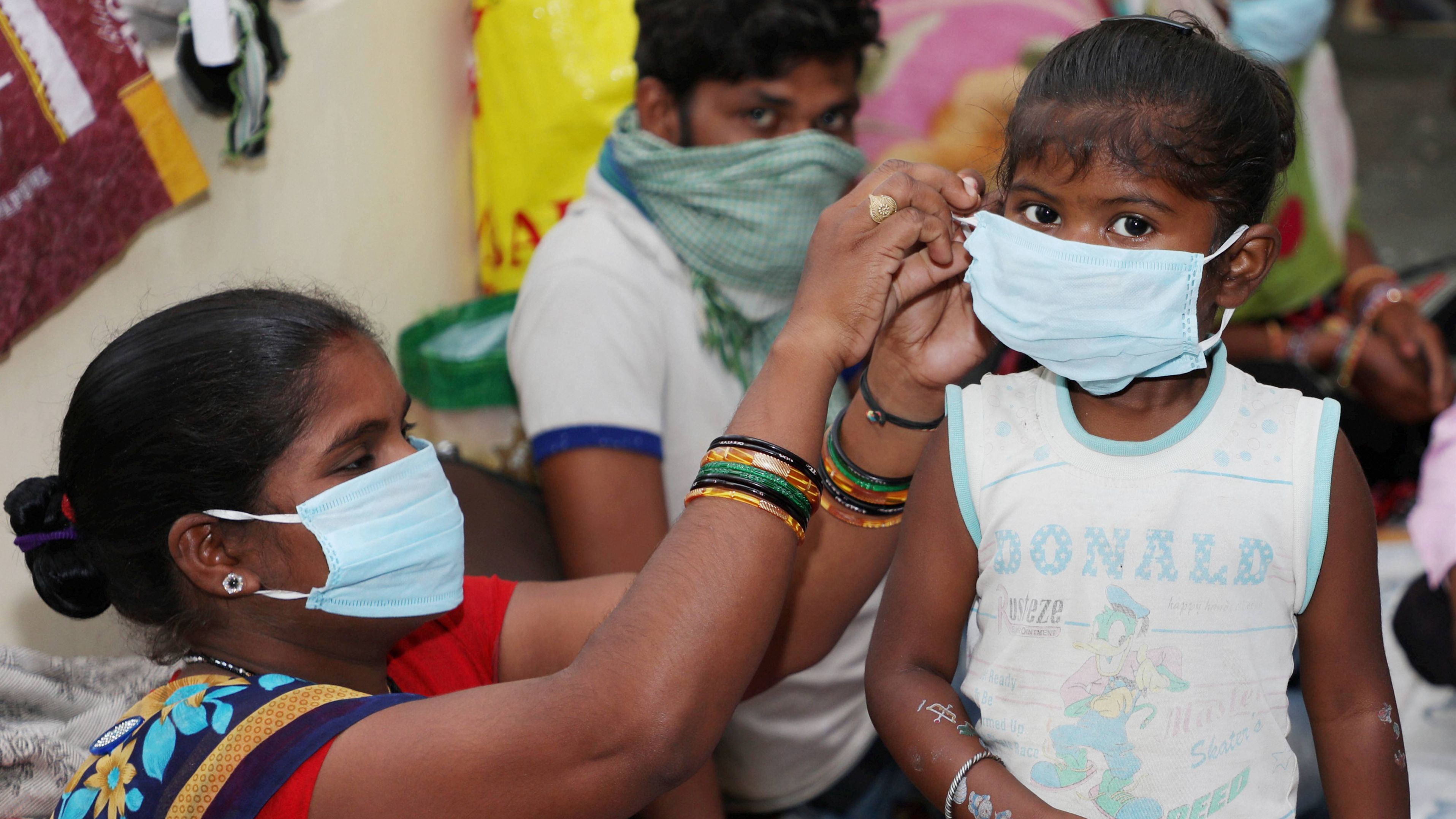AIIMS Director Dr Randeep Guleria on Monday, 24 May, said while it has been said that children will be infected the most during the third wave, the Pediatrics Association has said that this is ‘not based on facts.’
Are children vulnerable to a severe infection? Should we be diverting our efforts towards vaccinating and protecting them?
What exactly has the Indian Academy of Pediatrics (IAP) said in its statement. Here’s what you need to know.
Are children at greater risk if the third wave strikes?
- According to IAP, it is unlikely that the third wave will affect children predominantly or exclusively.
- Children are just as susceptible to catch the infection as adults and older people, but not the severe disease.
- The latest serosurvey (December 2020, January 2021) showed that the percentage of infected children between 10 to 17 years was around 25 percent. This is the same as adults.
How likely are children to develop the severe infection?
- A very small percentage of children may develop a severe infection.
- 90 percent of infections in children are mild or asymptomatic, the IAP suggests.
But can we rule out the possibility of severe infections in children in the third wave?
- There is no evidence to say that most children who are COVID-19-positive, if a third wave strikes, will have severe infections.
- The illness is less likely to be severe in children than in adults, the IAP has added.
- That being said, India does need to look out for how the mutant strains will behave.
But are children already being severely infected?
- Severe illnesses related to COVID-19 like pneumonia and multi-system inflammatory syndrome (MIS-C) can occur in children, and they may need ICU care, the IAP said.
- However, the association added that pneumonia is rare, and MIS-C is treatable and with a good outcome if diagnosed early.
In a webinar with The Quint, Dr Giridhar R Babu, epidemiologist and a professor at Public Health Foundation of India, said, “In some countries like Japan this has been reported as a major event, and there has been reporting of it in Delhi and Mumbai as well.”
How can we as parents prepare for the third wave, in case it does affect children severely?
- As per IAP, children who get a mild infection with fever can be cared for and monitored at home.
- Preventive measures are the same for children as they are for adults – mask up, maintain hand hygiene, and practise physical distancing.
- The IAP recommends that parents should model good mask etiquette, hand hygiene, and social distancing.
- Children above the age of two to five years can be trained to use a mask.
However, this comes with its challenges. In the webinar with The Quint, Dr Rakesh Mishra, former director of CSIR-Centre for Cellular and Molecular Biology in Hyderabad and member of INSACOG, India’s Genome Sequencing Consortia, said, “For a year, children were at home and isolated, when schools opened and they stepped out, it's difficult to impose masking and COVID-appropriate behaviours in adults, in children it's even more difficult. They interact with each other, they'll exchange masks, this leads to unusual higher level of exposure among children.”
Even after we take precautions, is our pediatric structure prepared to deal with a surge?
Dr Giridhar R Babu said during the webinar, “We all know what happened with adults when it came to seeking ICU care. Pediatric ICUs are even more difficult to find compared to other ICUs. It's not just ICUs, you need multi-specialists to manage different systems, and we don't have those kind of resources everywhere.
“First, you have to protect the children from getting infected. Adopt COVID-appropriate behaviours.
“Second, we need to vaccinate all adults, at least the more vulnerable as soon as possible.
“Third, facilitate faster trials for children where possible.
Next, you need to step up all our pediatric ICUs and specialists at a block level and have a referral pathway where whoever is affected is transferred in time. Start identifying these facilities. I can already tell you in some metros, they are identifying zonal level jumbo ICUs for pediatric age-group, and they are saying it's not just for COVID-19, anyway we don't have, let's build them.”
Additionally, the IAP has assured us that their preparations for in-patient beds and intensive care beds for children are in full swing.
Should we now be considering vaccination for children?
- Older adults have been a priority so far because global data shows that they are a thousand times more likely to die from COVID-19 than children.
- There is no harm in considering vaccination for children. However, this can only be done after adequate trials, the IAP stressed.
(At The Quint, we question everything. Play an active role in shaping our journalism by becoming a member today.)
